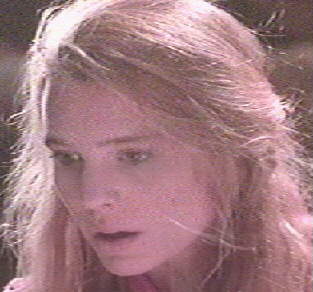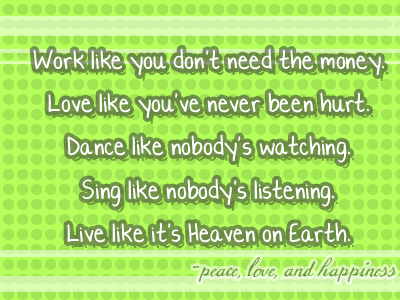
O Hear the Angels' Voices!
O Night Divine...
The Power of Prayer
I know it sounds cheesy to some of you, but I do believe in miracles.
There have been two occasions in my life (three if you count my prayers before the Red Sox had the Greatest Comeback in Sports History!) where I have prayed so hard for something and gotten a real answer.
This past week was such a time. Without breaking any confidences, I will say that I have prayed so much these past few weeks for something to happen and it seems as if all that praying has paid off. A miracle of sorts. Call it coincidence if you like, but the end result is something of a dream, and I am so happy to be a part of it. The moral of the story, though a bit vague, is to stay hopeful. Good things happen to good people just not the way you always expect. In the end it is good indeed.
And They Lived Happily Ever After.
A thrill of hope the weary world rejoices,
For yonder breaks a new and glorious morn.
Fall on your knees! Oh, hear the angel voices!
O night divine, the night when Christ was born;
O night, O Holy Night , O night divine!
O night, O Holy Night , O night divine!

Led by the light of faith serenely beaming,
With glowing hearts by His cradle we stand.
O'er the world a star is sweetly gleaming,
Now come the wisemen from out of the Orient land.
The King of kings lay thus lowly manger;
In all our trials born to be our friends.
He knows our need, our weakness is no stranger,
Behold your King! Before him lowly bend!
Behold your King! Before him lowly bend!
Now for a quick history lesson:
The words and lyrics of the old carol 'O Holy Night' were written by Placide Cappeau de Roquemaure in 1847. Cappeau was a wine seller by trade but was asked by the parish priest to write a poem for Christmas. He obliged and wrote the beautiful words of the hymn. He then realized that it should have music to accompany the words and he approached his friend Adolphe Charles Adams(1803-1856). He agreed and the music for the poem was therefore composed by Adolphe Charles Adams. Adolphe had attended the Paris conservatoire and forged a brilliant career as a composer. It was translated into English by John Sullivan Dwight (1812-1893).







No comments:
Post a Comment